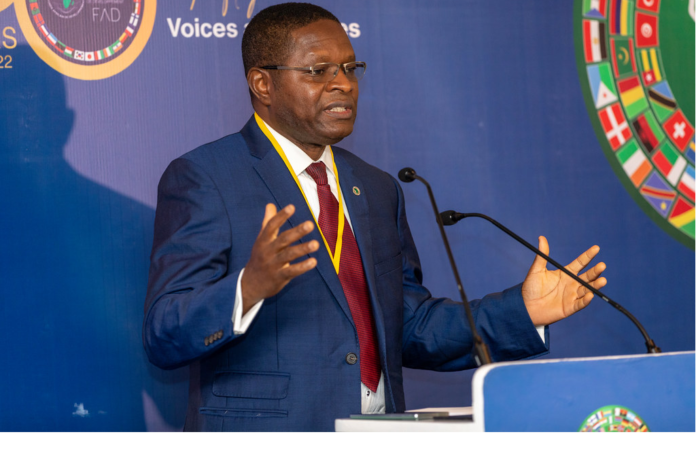African Development Bank Group (Acting Chief Economist and Vice President Kevin Urama has called for more robust capacity development and research on the impact of climate change in Africa.
Urama made the call when he presented the African Development Bank’s African Economic Outlook (AEO) 2022 report to senior faculty members of Harvard University’s Center for African Studies recently.
The report titled, Supporting Climate Resilience and a Just Energy Transition in Africa, highlights the growing threat climate change poses to lives and livelihoods in Africa.
Several Harvard University experts who participated in Urama’s presentation were James Stock, Vice Provost for Climate and Sustainability; Emmanuel Akyeampong, Oppenheimer Faculty Director, Harvard Center for African Studies; Peter Huybers, Professor of Earth and Planetary Sciences; and George Sarrinikolaou, Assistant Provost for Climate and Sustainability.
While highlighting the need for African countries to take advantage of opportunities presented by the green transition and climate change, Urama said Africa was home to most of the world’s green development minerals, including lithium, nickel, cobalt, manganese, rare earth, copper, aluminum, and natural. Noting that these resources present Africa with huge potential to lead the world in the emerging climate-resilient development markets.
“Continued investment in high carbon energy sources presents significant asset-stranding risks as technologies, policies, and markets are increasingly shifting towards the green transition,” he added.
Urama said world leaders must take climate finance and just energy transitions in Africa more seriously while urging industrialized countries to fulfill the pledge made at the 2009 COP meetings to provide developing nations with $100 billion in climate finance.
He further highlighted the importance of holding further discussion on the financial preconditions for supporting climate resilience and the just energy transition at the next COP27 meeting. Those talks, he said, should include an open conversation on the loss and damages that African countries face owing to climate change impacts.
He added that the current framework for financing climate action favors countries that are more resilient over those that are more susceptible to the effects of climate change, as participants also decried misappropriation of the financial resources for climate change in Africa, insisting that the situation poses huge problems.
Research meanwhile has shown that nine of the world’s ten most vulnerable countries to climate change are in Africa, as the impact of climate change on lives and livelihoods is already costing Africa between 5 and 15% of its GDP per capita growth annually.
Urama said the African Development Fund (ADF), which is the concessional lending arm of the African Development Bank Group, could serve as a vehicle for climate finance to reach fragile and climate-vulnerable countries. Adding that channeling climate financing through the African Development Fund has the tendency of accelerating the pace of climate action in these nations because the Bank can, according to him, leverage funds by up to four times.
A discussion also followed Urama’s presentation of the African Development Bank Group and Harvard University experts. Topics included areas for potential collaboration on work program development and implementation, focusing on inclusive growth and sustainable development in Africa.


